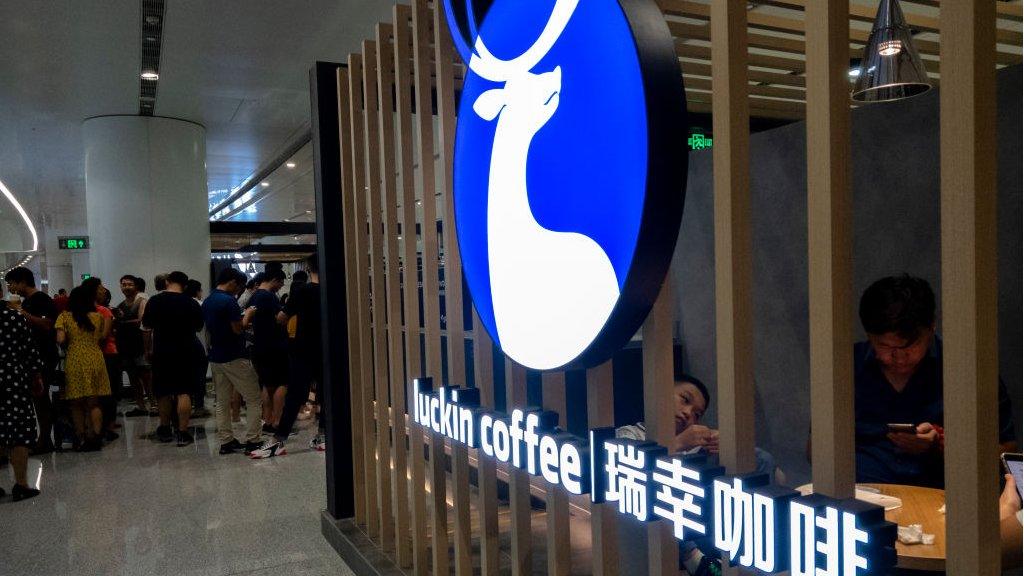Coronavirus: New York Stock Exchange trading floor reopens
- Published
New York Governor Andrew Cuomo rings the opening bell at the New York Stock Exchange
The New York Stock Exchange (NYSE) has reopened its trading floor after a two-month closure due to the coronavirus pandemic.
But as new social distance rules come into effect, the exchange looks and feels very different.
The NYSE is one of the few bourses to still feature floor trade - most have shifted to fully-electronic trading.
New York City has been hit hard by the outbreak with some 200,000 cases and more than 20,000 deaths.
Financial markets have continued to trade throughout the pandemic, but the exchange's trading floor was closed from 23 March and activity temporarily moved to fully-electronic trading to protect workers.
New York Governor Andrew Cuomo was on hand to ring the bell that re-started in-person trade, a sign of the symbolic weight attached to the reopening.
New rules
US shares gained on Tuesday amid investor enthusiasm about economic rebound, but the new NYSE rules are a reminder that a full return to business will take time.
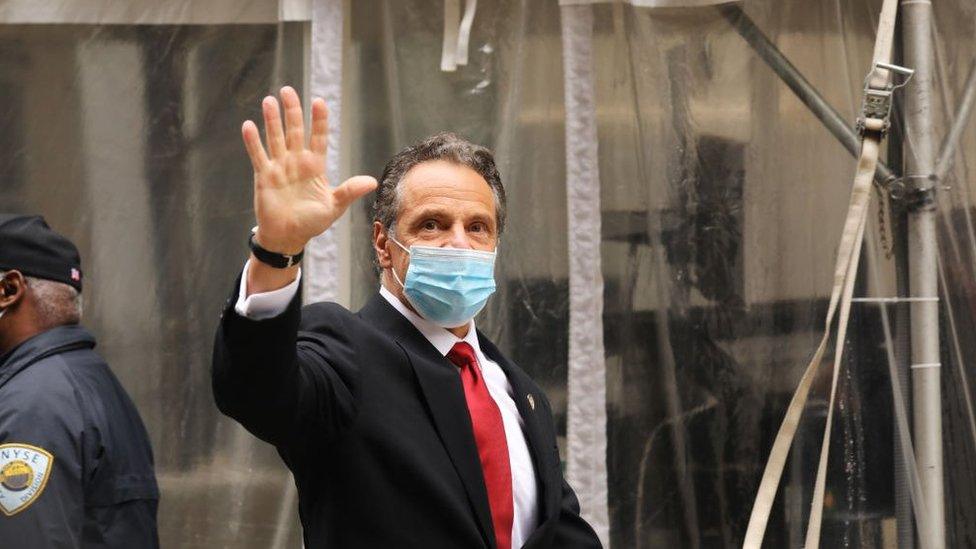
New York Governor Andrew Cuomo at the New York Stock Exchange
"It's not about returning to normal," NYSE president Stacey Cunningham told the BBC. "It's about living with this global pandemic until there's a vaccine."
She added that she had faced "no pressure" from the Trump administration, which follows financial markets closely and has generally supported a rapid reopening.
Under the NYSE changes, only a quarter of the normal number of traders will be allowed to return to work.
Traders must also avoid public transport, wear masks and follow strict social distancing rules, with newly fitted transparent barriers to keep people apart.
They will also be screened and have their temperatures taken as they enter the building. Anyone who fails pass the check will be barred until they test negative for coronavirus or self-quarantine in accordance with US government guidelines.
To return to their jobs, floor traders also have to sign a liability waiver that prevents them from suing the NYSE if they get infected at the exchange.
Some large financial companies, such as Morgan Stanley, have reportedly balked at signing, but Ms Cunningham defended the waiver as a way to ensure that traders, which are not employed by the exchange, abide by the new rules.
"We need to make sure that they're committed to following this new norm," she said.
Visitor ban
NYSE, which is owned by Intercontinental Exchange, is the world's largest stock exchange in terms of the total market capitalisation of listed companies.
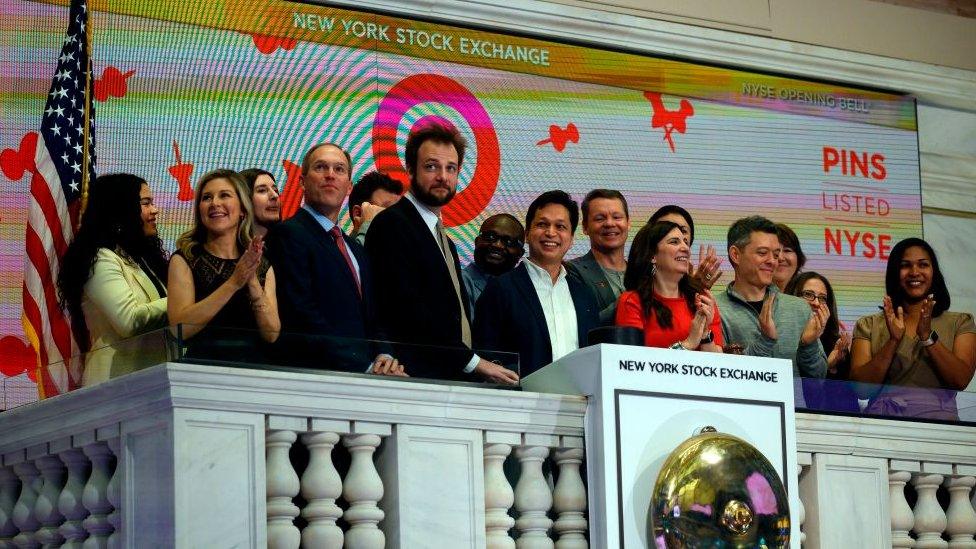
The NYSE's high-profile market debut celebrations have been put on hold
The 228-year-old exchange last closed its doors on 29 October 2012 due to Hurricane Sandy. It also shut for four sessions in the aftermath of the 9/11 terrorist attacks in 2001.
But the bourse resisted closing at the start of the pandemic and the closure reignited debate about the necessity of the floor in an era dominated by electronic activity.
Ms Cunningham said trading has functioned smoothly with the floor closed, but she believed reopening will further ease volatility and help smaller firms that rely on in-person trades for their business.
"We are relevant we are necessary and WE ARE BACK," floor trader Peter Tuchman wrote on Twitter ahead of the reopening.
Allow X content?
This article contains content provided by X. We ask for your permission before anything is loaded, as they may be using cookies and other technologies. You may want to read X’s cookie policy, external and privacy policy, external before accepting. To view this content choose ‘accept and continue’.
For most people outside the financial world, NYSE's trading floor is a rare glimpse into the seemingly opaque workings of the global markets as well as being a colourful setting for companies to showcase their stock market debuts.
The new regulations mean that the NYSE's high-profile opening bell events and stock market debut celebrations have been put on hold as visitors are banned.
Media organisations that usually broadcast from the trading floor won't be allowed back until further notice.
In the BBC interview, Ms Cunningham also addressed a proposal by US lawmakers to require companies that sell shares in the US to abide by American accounting rules and audits, or face de-listing.
The move, which comes as US-China tensions increase, is aimed at Chinese companies. The Senate passed the measure last week and the House is expected to take up the measure before the end of the summer.
Ms Cunningham in the past has said de-listing Chinese companies generally would simply shift their business elsewhere.
On Tuesday, she said lawmakers should "balance" investor protections and investor choice, but that the exchange backs efforts that would enhance the information supplied to investors.
"Any measures to enforce that are highly supported by us," she said.

Trading - but not as we know it
Analysis by Samira Hussain, BBC reporter New York
Before the coronavirus, I was a regular on the floor of the New York Stock Exchange.
It may be one of the great symbols of US capitalism, but it's also, just a workplace for hundreds of traders, market makers, and various bystanders such as journalists.
And like so many offices and shop floors it's not somewhere that you would ever associate with social distancing, keeping two metres apart and wearing masks. Quite the reverse - face-to-face stock trading is sometimes close to a contact sport, as is reporting from the floor.
So the NYSE has to take its reopening very slowly. It will be a relief for some traders to be back to work, but it's not going to look like the trading floor we're all used to seeing for quite some time.

- Published18 March 2020
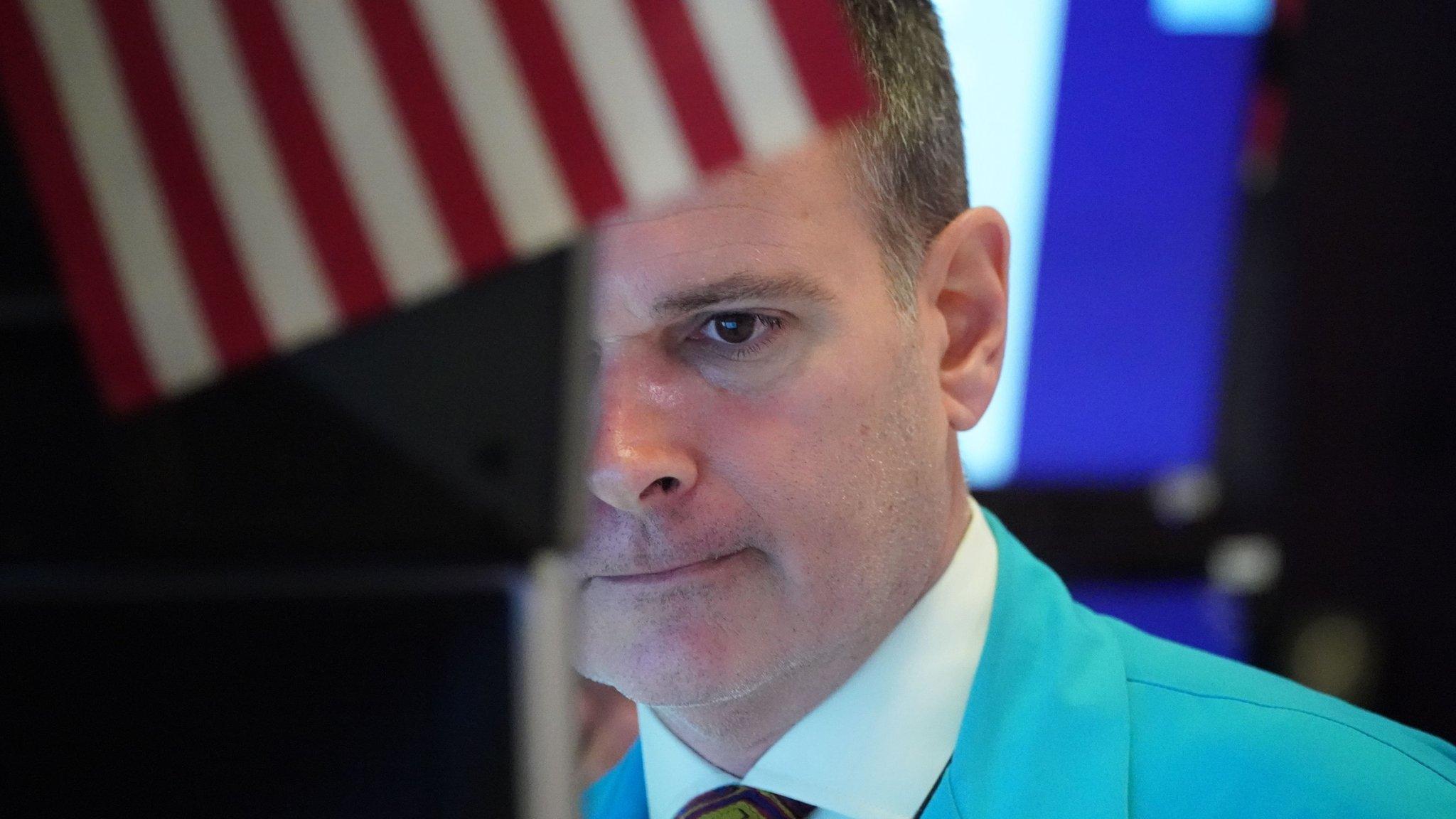
- Published26 May 2020
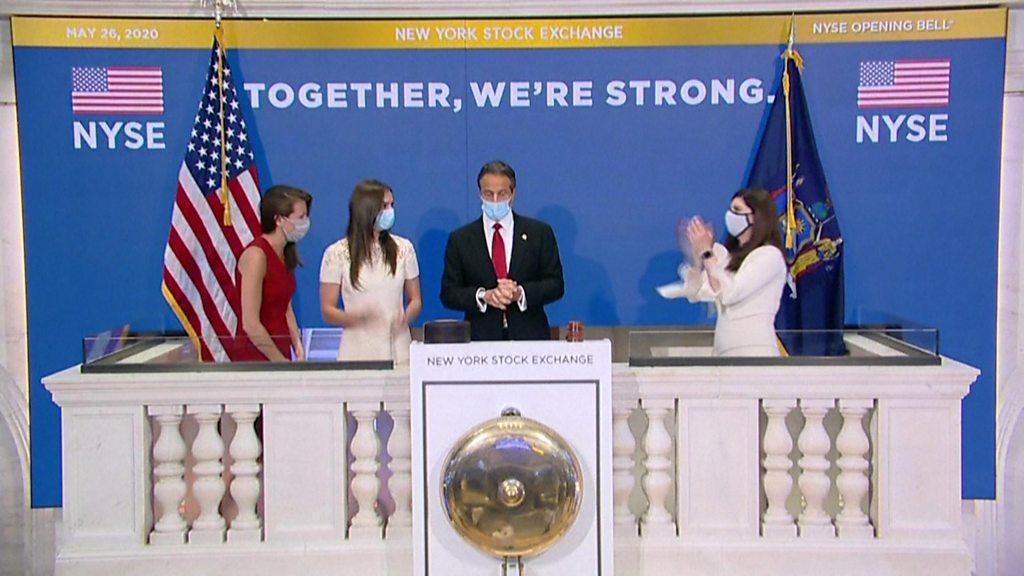
- Published21 May 2020
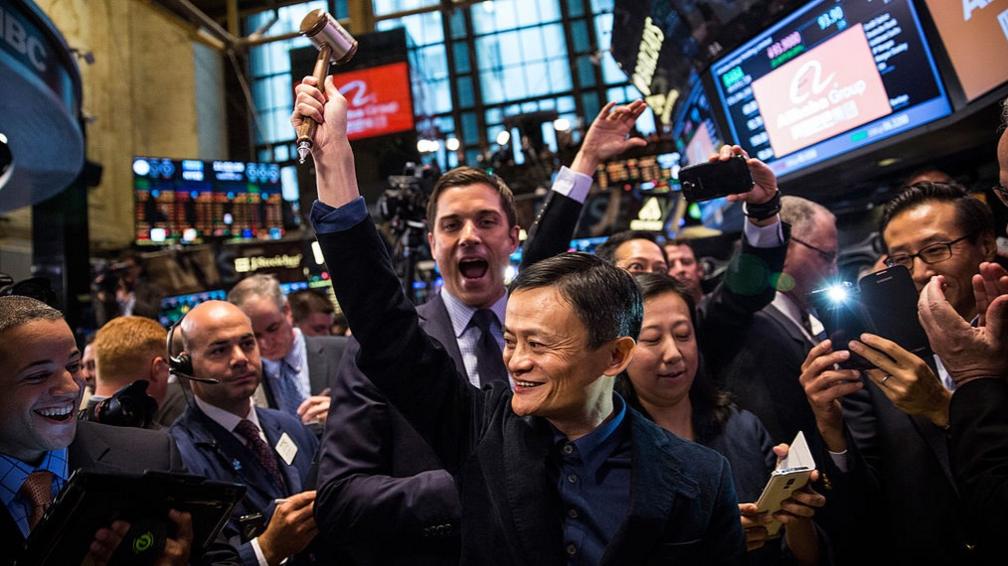
- Published19 May 2020
